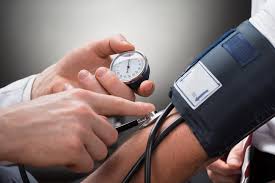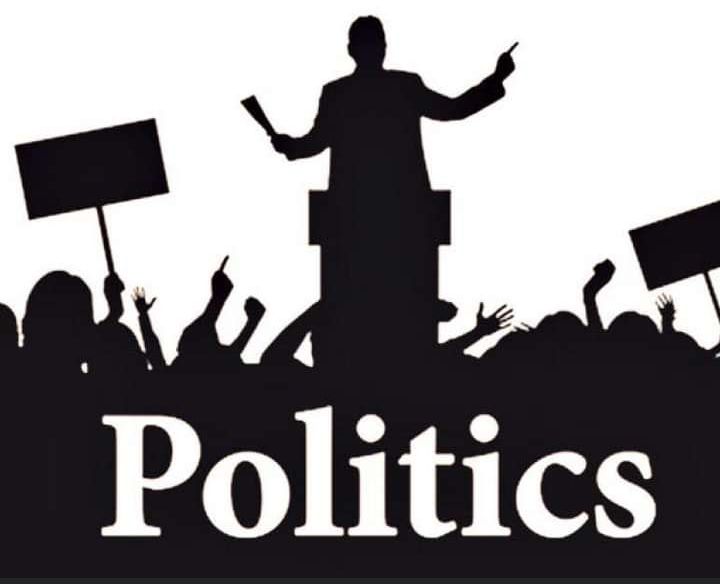Health
Hypertension: Causes, Symptoms, Treatment, Prevention

High blood pressure, also called hypertension, is a common disease that occurs when the pressure in your arteries is higher than it should be.
Blood pressure is the force of blood pushing against the walls of the arteries as the heart pumps blood throughout the body. If left untreated, high blood pressure can lead to health problems, such as heart disease, stroke, kidney failure and vision loss.
Signs and Symptoms of High Blood Pressure
Most people with high blood pressure have no signs or symptoms of it. That’s why the condition has been dubbed a ‘Silent Killer’.
In rare cases, and if blood pressure reaches dangerous levels, a person may get headaches or more nosebleeds than normal.
Causes and Risk Factors of High Blood Pressure
The following can increase your chances of developing high blood pressure.
Older Age: The risk of high blood pressure increases as you age; the older you are, the more likely you are to develop high blood pressure. According to the AHA, blood vessels gradually lose their elasticity over time, which can contribute to high blood pressure.
The risk of prehypertension and high blood pressure has been increasing in recent years in young people too, including children and teens, possibly because of the rise in obesity in these populations, reports the National Heart, Lung, and Blood Institute.
Race: According to the Centers for Disease Control and Prevention (CDC), high blood pressure is more common in Black American adults than in white, Asian, or Hispanic American adults.
Gender: Men are more likely than women to be diagnosed with high blood pressure, until age 64, per the AHA.right up arrow However, after that age, women are more likely to have high blood pressure.
Family History: Having a family history of high blood pressure increases your risk, as the condition tends to run in families.
Being Overweight:The more you weigh, the more blood you need to supply oxygen and nutrients to your tissues. Per the Mayo Clinic, when the volume of blood pumping through your blood vessels increases, the pressure on your artery walls also rises.right up arrow
Lack of Physical Activity: People who are not active tend to have a higher heart rate and higher blood pressure than those who are physically active, according to the Mayo Clinic.right up arrow Not exercising also increases the risk of being overweight.
Tobacco Use: When you smoke or chew tobacco, your blood pressure rises temporarily, partly from the effects of nicotine. Moreover, chemicals in tobacco can damage the lining of your artery walls, which can cause your arteries to narrow, increasing your blood pressure, according to the Mayo Clinic.right up arrow Being exposed to secondhand smoke may also increase your blood pressure.
Dietary Choices: What you choose to eat (and not to eat) can increase your risk of hypertension.
Too much sodium can cause your body to retain fluid, which increases blood pressure.
Since potassium helps balance the amount of sodium in your cells, not getting enough of it can raise blood pressure.
Alcohol Consumption: Over time, heavy alcohol use can damage the heart and lead to heart failure, stroke, and irregular heart rhythm. If you choose to drink alcohol, do so in moderation.
Stress: Being under intense stress can lead to a temporary increase in blood pressure, if you try to cope with stress by overeating, using tobacco, or drinking alcohol, all of these can contribute to high blood pressure.
Chronic Conditions: Having kidney disease, sleep apnea, or diabetes can affect blood pressure,
Pregnancy: Being pregnant can cause an increase in blood pressure. High blood pressure occurs in 1 in every 12 to 17 pregnancies in women ages 20 to 44.right up arrow
Birth Control: Women who take birth control pills have a greater risk of developing high blood pressure. It’s more likely to occur when women are overweight, have had high blood pressure during a previous pregnancy, have a family history of blood pressure, smoke, or have mild kidney disease.
Causes of Secondary Hypertension
When high blood pressure arises suddenly due to an identifiable condition, it’s called secondary hypertension.
The following conditions can lead to secondary hypertension, including:
Kidney problems
Adrenal gland tumors
Thyroid problems
Blood vessel defects
Obstructive sleep apnea
Alcohol abuse or chronic alcohol use
Illegal drugs, including cocaine and amphetamines.
Drugs That Can Cause High Blood Pressure
Medications that you take to control other health conditions, such as arthritis, epilepsy, or allergies, can cause your blood pressure to rise.
Such medications can also interfere with the ability of antihypertensive drugs to keep blood pressure down.
The drugs below are some of the ones that may negatively affect blood pressure.
Pain Medications Common pain and anti-inflammatory medicines can lead to the retention of water, which can increase blood pressure and create problems with the kidneys.
Examples include:
Nonsteroidal anti-inflammatory drugs (NSAIDs), such as ibuprofen (Motrin, Advil) and naproxen (Aleve, Naprosyn)
Indomethacin (Indocin)
Acetaminophen (Tylenol)
Piroxicam (Feldene)
Antidepressants These drugs work by changing the body’s response to chemicals that affect mood. That can also lead to an increase in blood pressure.
Examples of antidepressants that may elevate blood pressure include:
Fluoxetine (Prozac, Sarafem)
Venlafaxine (Effexor XR)
Monoamine oxidase inhibitors
Tricyclic antidepressants
Decongestants These medicines, which include common cough, cold, and allergy drugs, are known to raise blood pressure and to alter the effectiveness of blood pressure medication.
Examples include pseudoephedrine (Sudafed, Contac) and phenylephrine (Sudafed PE).
Hormones Birth control pills can also affect blood pressure. Women who take birth control pills usually experience a small rise in systolic and diastolic blood pressure (the top and bottom numbers that are determined when you get your blood pressure checked).
Hormone therapy used to relieve symptoms of menopause can also cause a small rise in systolic blood pressure.
If you know you have high blood pressure but are considering hormone therapy, talk with your doctor about the risks and benefits of undergoing hormone therapy, as well as the best ways to control your blood pressure.
Additionally, some recreational and illegal drugs, such as cocaine, ecstasy (MDMA), and amphetamines, are also known to increase blood pressure.
How Is High Blood Pressure Diagnosed?
Blood pressure checks are part of routine doctor visits. To check your blood pressure, your healthcare provider will place an inflatable cuff around your arm and use a pressure-measuring gauge.
Before giving a diagnosis of high blood pressure, your physician will likely take two or three readings during separate appointments. Your physician may also ask you to keep a record of blood pressure measurements you take at home. That’s because blood pressure varies throughout the day, and some people may be anxious before or during a doctor visit, causing elevated blood pressure.
If your blood pressure is consistently 130/80 millimeters of mercury (mmHg) or higher, you will most likely be diagnosed with high blood pressure.
The guidelines recommend earlier intervention to prevent further increases in blood pressure that could lead to health problems.right up arrow
If you have high blood pressure, your physician will take a full medical history and conduct a physical exam. Other routine tests may be given, including a blood test, urine test, cholesterol test, and an electrocardiogram or echocardiogram to check for signs of heart disease, according to the Mayo Clinic.right up arrow
Duration of High Blood Pressure
The amount of time it takes to lower blood pressure varies depending on how high your blood pressure is and the aggressiveness of your treatment program. Medication can help lower blood pressure quickly, usually within a couple of days, according to the U.S. Food and Drug Administration.
But because of potential side effects, a long-term aggressive medication regimen may not be sustainable.
Your doctor will prescribe lifestyle changes to lower your blood pressure too. Studies show that a healthy diet and regular exercise can begin to make a significant impact on blood pressure levels within three weeks.
Treatment and Medication Options for High Blood Pressure
Most people who have high blood pressure will likely need lifelong treatment to help ward off or delay serious health problems brought on by the condition.
Options to treat high blood pressure may include eating a healthy diet with less salt, taking medication, and incorporating additional lifestyle changes. These include exercise, limiting alcohol intake, smoking cessation, and managing stress, according to the National Heart, Lung, and Blood Institute.
Medication Options
There are a variety of drugs available to treat hypertension. Some work by removing extra fluid and salt from your body to lower blood pressure; others slow down your heartbeat or relax and widen blood vessels.
For many people with high blood pressure, taking more than one medication in low doses is more effective than taking larger doses of a single drug.
Depending on your past medical history and the severity of your hypertension, your doctor may recommend one or more of the following drugs:
Diuretics Sometimes called water pills, diuretics are typically the first line of treatment for high blood pressure. This medication helps the kidneys rid sodium and water from the body, decreasing the amount of fluid flowing through the veins and arteries, which in turn lowers blood pressure.
Beta-Blockers These medications reduce the workload of the heart and widen blood vessels.
As a result, the heart beats slower and less forcefully. Beta blockers are often combined with other blood pressure medications.
Angiotensin-Converting Enzyme Inhibitors (ACE Inhibitors) This class of drugs helps lower blood pressure by relaxing the blood vessels, allowing blood to flow through the body more easily.
Angiotensin II Receptor Blockers (ARBs) These medications block specific hormones from having any effect on the heart and blood vessels. This prevents blood pressure from rising.
Calcium Channel Blockers This type of medication interrupts the movement of calcium into the cells of blood vessels, thus relaxing the muscle cells in the blood vessels.
Renin Inhibitors These drugs slow the production of an enzyme called renin, which is made in the kidneys and can increase blood pressure. Renin inhibitors should not be taken with ACE inhibitors or ARBs.
Alpha-Blockers These medications lower blood pressure by blocking a hormone from tightening the muscles in the veins and arteries.
Alpha-Beta-Blockers This subclass of combined alpha- and beta-blockers slows the heart rate to reduce the amount of blood pumped through the blood vessels.
Central-Acting Agents These medications block signals from the brain that alert the nervous system to increase the heart rate and narrow the blood vessels.
Vasodilators These medications prevent the artery muscles from tightening and the arteries from narrowing.
Using Diet to Treat High Blood Pressure
People with high blood pressure should watch their sodium intake and stick to a healthy diet. Your doctor might recommend DASH (Dietary Approaches to Stop Hypertension), which is a diet that consists of foods that are low in sodium and cholesterol and rich in protein, fiber, and other nutrients, per the National Heart, Lung, and Blood Institute.right up arrow
Prevention of High Blood Pressure
The best way to prevent high blood pressure is to lead a healthy lifestyle. According to MedlinePlus, that includes:
Eating a healthy diet
Maintaining a healthy weight
Exercising regularly
Not smoking
Limiting alcohol intake
Reducing stress
Complications of High Blood Pressure
If left untreated, high blood pressure can lead to the following:
Research and Statistics: How Many People Have High Blood Pressure?
Hypertension is a very common condition, in developing countries as well as industrialized nations.
,,,,,,Nearly half of all adults in the United States have high blood pressure.
High blood pressure is more common in men than women. About 50 percent of men in the United States have high blood pressure, compared with 44 percent of women.
-

 Osun News6 days ago
Osun News6 days agoVideo: Osun Monarch hospitalised after beaten by angry youths
-

 Education4 days ago
Education4 days agoFG Introduces 15 Compulsory Skills For Primary, JSS Students
-

 News5 days ago
News5 days agoState Gov Announces N600 Fuel Per litre For Residents
-

 Education21 hours ago
Education21 hours agoCourt Remands Lagos Teacher In Prison For Maltreating 3-Yr-Old Pupil
-

 Politics6 days ago
Politics6 days agoLG Chairmen, councillors dump PDP for APC
-

 News5 days ago
News5 days agoState Gov Sacks Two Traditional Leaders, Gives Reason
-

 Metro/Crime7 days ago
Metro/Crime7 days agoPopular Music Icon Dies After New Year’s Eve Crash
-

 News3 days ago
News3 days agoGov Makinde talks tough on Oriyomi, Naomi’s Arrest, as court fixes date for bail application




